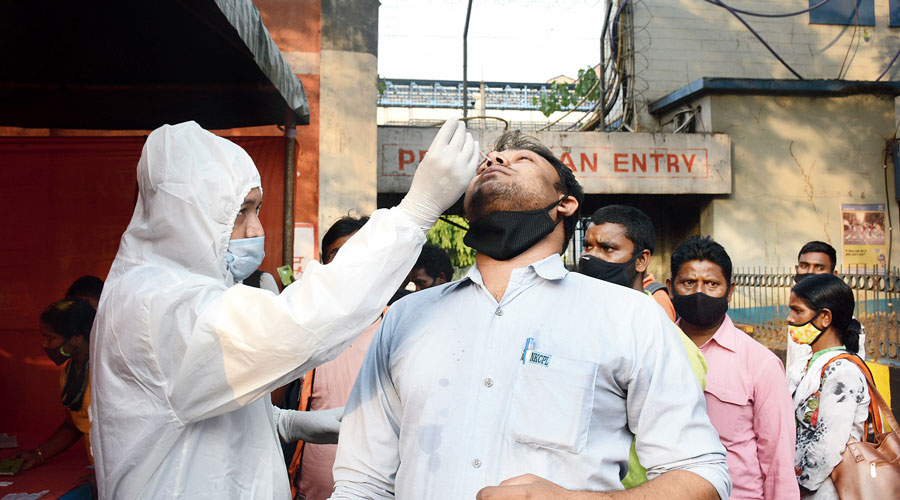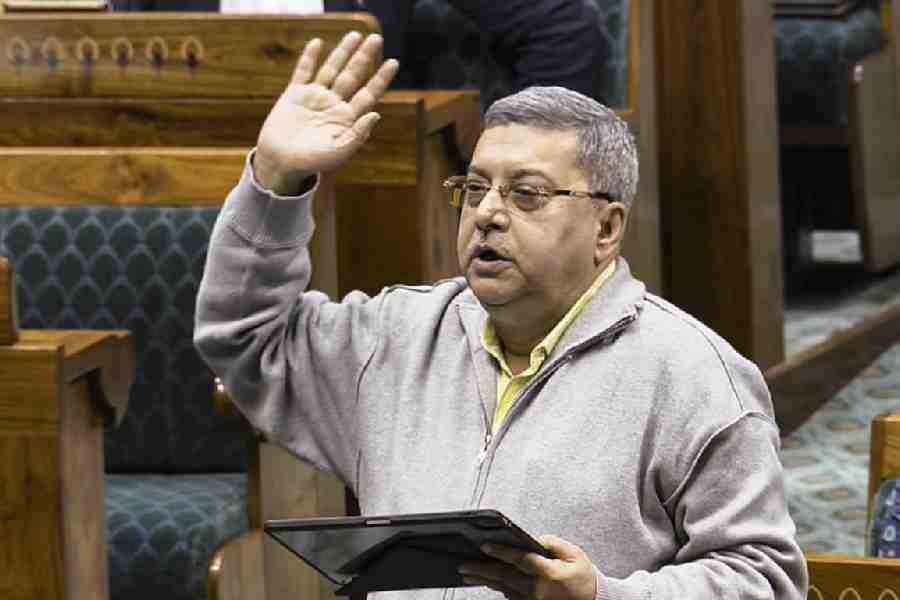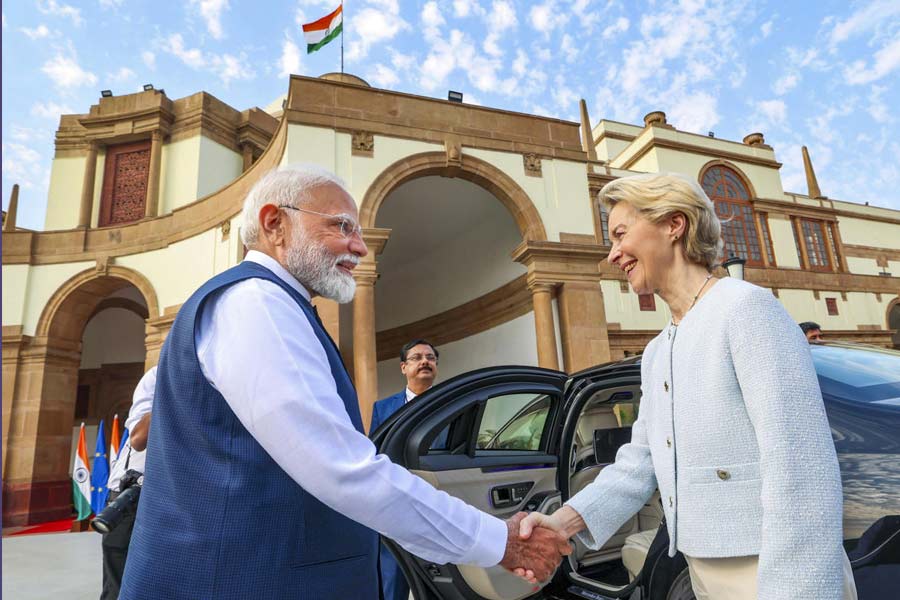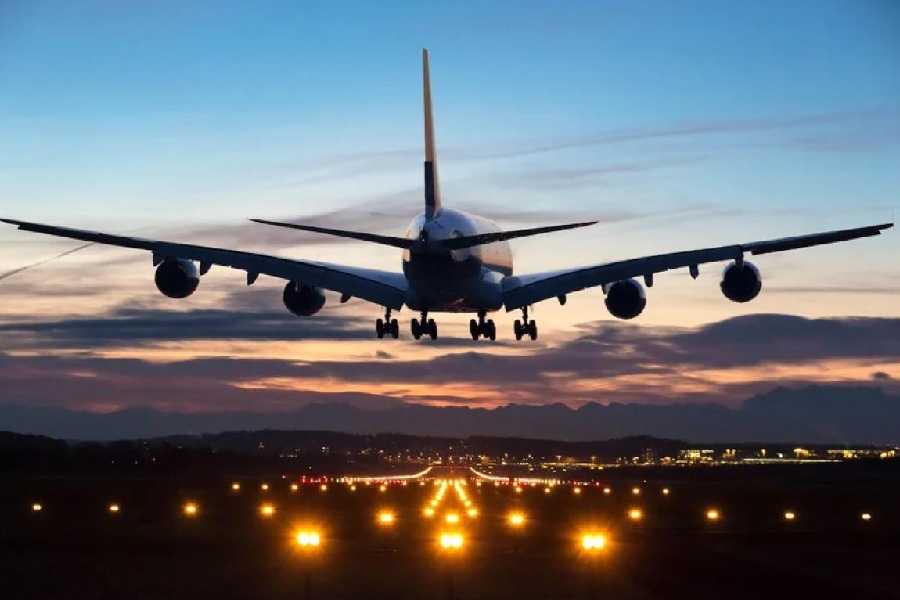Since the announcement of elections, nearly three months ago till Saturday, West Bengal's riverine, largely rural hinterland has seen a 48-fold jump in active Covid-19 cases, with medical experts attributing it to the unprotected poll rallies.
Most medical professionals blame the mass gatherings at election rallies for the huge surge in the disease.
On February 26, when the Election Commission announced the poll dates, West Bengal’s number of active Covid cases was just 3,343, while it stood at 1.32 lakh on Saturday, a near 40-fold increase.
However, the spread in districts, other than Calcutta, is far more. From a mere 2,183 active cases on February 26, the number of active cases on May 15 has risen to 1.06 lakh, a worrying 48-fold increase.
“There is no doubt that the reason behind this surge of Covid in rural Bengal is the prolonged election process. The reason is nothing but political and only political,” said Dr Amitava Nandi, a senior expert in tropical diseases and formerly of the School of Tropical Medicine (STM).
Elections were held from March 27 till April 29, in an unprecedented eight phases, prolonging the campaign period.
Many of the districts which saw pitched political battles with leaders extensively touring them such as Hooghly, Purba Bardhaman, Paschim and Purba Medinipur, Nadia, Darjeeling and Murshidabad reported near 100-fold rise in cases during the period.
Dr Sanjib Bandyopadhyay, community medicine specialist and vaccination supervisor of the Infectious Diseases and Beliaghata General (ID&BG) Hospital blamed the unscientific holding of elections in eight phases and movement of people including paramilitary forces across state and district boundaries for the surge.
“If you cannot allow people who had gone to other states to work as migrant labourers to return home here without RT-PCR tests, how have you allowed large numbers of central forces and other people to travel remote areas without any such tests? This has definitely helped in the surge of cases,” he said.
According to Dr Nandi, the new Bengal strain (B.1.618), the second mutant strain discovered in India, started spreading across the state because of movement of people during the elections.
“The administration was never prepared for this despite our warnings. Both the central and the state government were complacent as if they had won the battle against corona. They reduced the number of beds in the hospitals, never thought of increasing testing facilities. Then they allowed people to move, migrate without proper tests and flout the safety protocols,” said Dr Hiralal Konar of the Joint Platform of Doctors.
On Saturday, Howrah reported 1,276 new cases, South 24 Parganas (1,257), Hooghly (1,193), Nadia (1,038), Purba Medinipur (753), Paschim Bardhaman (977) and Darjeeling (662), according to the state health department's statistics.
The total number of cases, including recoveries, in West Bengals districts other than Calcutta, also went up from 4.45 lakh on February 26 to nearly 8.64 lakh as of Saturday, May 15.
The figures may be the tip of the iceberg, given the fact that people in rural areas have limited access to testing facilities.
North 24 Parganas, wedged between Calcutta and the international border with Bangladesh, has just three government RT-PCR testing centres, whereas it has 26,047 active cases as on Saturday, marginally fewer than the tally for the capital of West Bengal.
“Definitely there has been under-reporting. Primarily, people are not taking the tests and also there are not adequate tests taking place. And the current RT-PCR tests are sometimes unable to detect the contagion because the virus has genetically mutated,” Dr Nandi said.
West Bengal at the moment has 115 testing laboratories in different parts of the state with a daily average of around 33,000 tests held daily, as per the state health bulletin.
PTI











